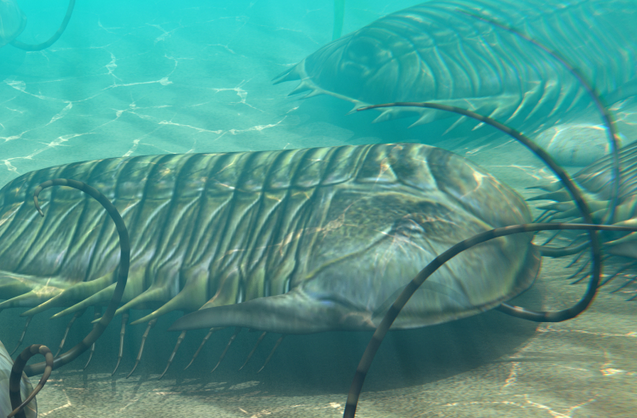Ten New Trilobite Species Unearthed in Thailand
Researchers have made a significant discovery in Thailand, unearthing ten new species of trilobites, extinct arthropods that provide valuable insights into the Earth’s geological history spanning 490 million years. These fossils, hidden in a little-studied part of Thailand, could serve as missing pieces in the intricate puzzle of ancient world geography.
Trilobites: Extinct Sea Creatures with Historical Significance
Trilobites, extinct sea creatures characterized by their half-moon-shaped heads and unique respiratory system through legs, hold historical significance for geologists studying Earth’s evolution over millions of years. The recent findings, detailed in a research monograph in the British journal Papers in Palaeontology, shed light on ten new trilobite species, including one named after Thai Royal Princess Maha Chakri Sirindhorn.
Geological Context: Petrified Ash and Zircon Crystals
The trilobite fossils were discovered trapped between layers of petrified ash in sandstone, a result of ancient volcanic eruptions. The ash settled on the sea floor, forming a green layer known as a tuff. What makes tuffs crucial for dating is the presence of zircon crystals, chemically stable and resistant to erosion, allowing for precise dating using radio isotope techniques. Zircon crystals in tuffs provide a unique opportunity to unravel the age of both the volcanic eruption and the associated fossils.
Challenges in Dating the Late Cambrian Period
The late Cambrian period, occurring between 497 and 485 million years ago, is challenging to date accurately due to limited tuff occurrences. The rarity of tuffs from this period makes the Thai discovery particularly significant, providing a window into a poorly dated interval in Earth’s history.
Global Connections and Geological Puzzle
The newfound trilobite fossils from Thailand offer more than just local insights; they provide an opportunity to connect Thailand with other parts of the world where similar trilobite discoveries have been made. The researchers emphasize the potential to better understand regions like China, Australia, and North America, where fossils are found in rocks that are challenging to date accurately.
Exciting Discovery on Ko Tarutao Island
The fossils were uncovered on Ko Tarutao Island, part of a UNESCO geopark site that encourages international collaboration in scientific exploration. The researchers believe that this discovery will enable the connection of Thailand to other parts of the world, adding a new dimension to the understanding of Earth’s ancient geological history.
Related Posts
Month: Current Affairs - November, 2023
Category: Science & Technology Current Affairs








